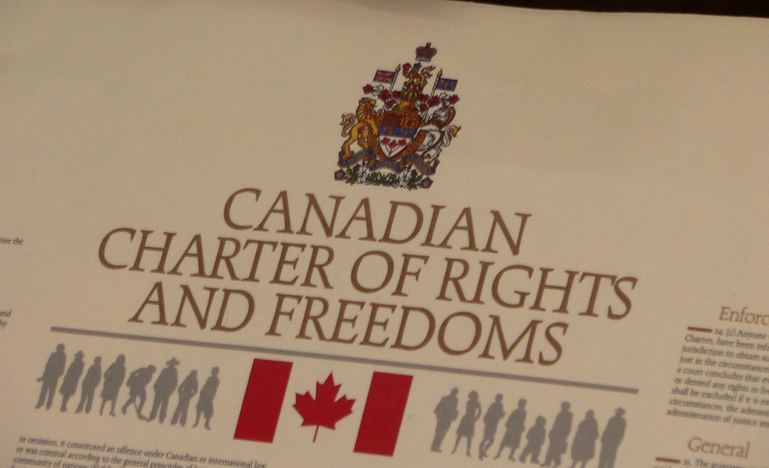Labelling pro-life views as ‘anti-Charter’ is wrong – and sets a dangerous precedent.
The national controversy surrounding the Canada Summer Jobs program has avalanched far beyond a mere “kerfuffle."

The national controversy surrounding the Canada Summer Jobs program has avalanched far beyond a mere “kerfuffle”. The government’s attempts at clarification have only generated further debate, but one thing has been made clear: the program is designed to exclude groups expressing views, especially on abortion, with which the government disagrees.
This may be unsurprising, even uncontroversial for some – what government doesn’t favour projects furthering its vision of the public good? Except here, the government won’t admit that it is motivated by mere disagreement (presumably this would concede too much credibility to targeted groups, and expose a partisan motivation for the new requirements). Instead, the government suggests that exclusion of pro-life groups from its public programs (including the newly announced Canada Service Corps) is mandated by the Charter because these groups have the “specific and explicit” purpose of removing human rights.
This is a misappropriation of rights language; it is both disingenuous and dangerous. It is disingenuous because the groups excluded by the government are not ‘anti-human rights’. The government seems intent on portraying pro-life advocates as angry, anti-Charter zealots whose “core mandate” is to “roll back the clock” on “hard won rights”. On the contrary, the work of such groups is steeped in, and motivated by, a deep commitment to human rights. They seek to secure protection of the law – including the right to life and security of the person enshrined in the Charter – for the pre-born. They advocate for freedom of expression, association, and conscience – all Charter guarantees – for those who hold minority viewpoints. They also work to address concerns shared by many pro-choice Canadians, including those related to maternal health, female-selective abortions, and stronger measures to address crimes against pregnant women.
One may disagree with the position and priorities of such groups and maintain that the rights they advocate for are outweighed by other freedoms and interests. But there is a fundamental difference between disagreeing on the appropriate delineation of competing rights and interests, and labelling a person or group as ‘anti-human rights’ because they adhere to a different point-of-view. The government insists on the latter, and can’t seem to fathom that pro-life work could be motivated by anything other than a desire to “seek to remove or actively undermine established individual human rights in Canada” (in fact, the Supreme Court has never recognized a Charter right to abortion).
As Canadian courts have long recognized, multiple rights and interests are at play in most Charter cases, often in tension with one another. In such cases, an advocate for certain Charter rights could easily be painted as “opposing” or “seeking to undermine” others. Thankfully, our courts have not adopted such a framework. In over 35 years of Charter litigation – in which deeply divisive social and moral issues have been vigorously debated – judges have consistently welcomed a wide-spectrum of ideologically-diverse organizations to share their (often fundamentally-opposed) views as friends of the court. If such groups were denied the privilege of equal participation because their conception of human rights was seen as opposing others, many of the very cases which have secured our hard won rights would have lacked important perspectives, and may have been decided differently. The free and democratic society envisioned in our Charter can only be secured if all voices advocating for justice are respected and heard.
This is why the government’s political “weaponization of the Charter” is not only disingenuous, but dangerous. By labelling dissidents as undermining not just a party’s political commitments but the Constitution itself, governments can suppress healthy, robust debates on important social issues.
If there is one hard won right the Charter protects, it’s the freedom to express ideas without reprisal – including those that challenge the accepted view – in a sincere effort to build a more just society. This doesn’t mean that the government must fund advocacy groups, but if it chooses to fund some and not others, its reasons for doing so must be both honest and justifiable – the bare assertion that pro-life views are incompatible with human rights is insufficient on both counts.
One of the Prime Minister’s most admirable qualities is his ability to inspire and to convey a powerful vision for the type of nation Canada aspires to be – one where those with opposing views aren’t enemies but neighbours; a country committed to “bringing people of all different perspectives together”. Were the Prime Minster to seek a deeper understanding of the organizations he is currently excluding, he might be surprised to learn that they share many of the same values – including a commitment to building a Canada in which “better is always possible”.
Derek Ross is ED & General Counsel for the Christian Legal Fellowship and has represented public interest interveners in over a dozen Charter cases, including several at the Supreme Court of Canada. He serves on the executive of the Constitutional and Human Rights Law sections of both the CBA and OBA. Sarah Mix-Ross is an Ontario lawyer and Associate Counsel with the Christian Legal Fellowship. The views expressed are their own.


